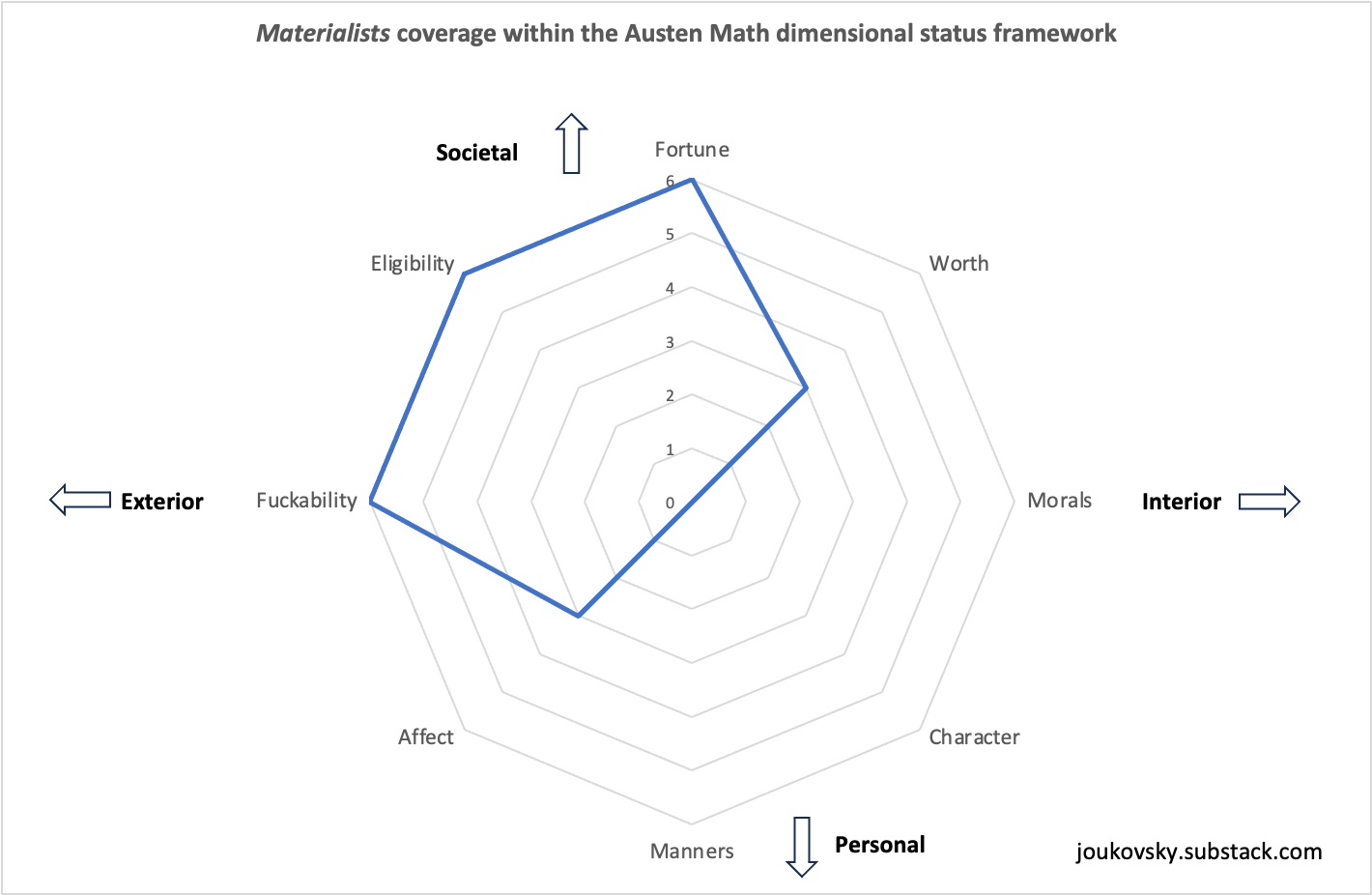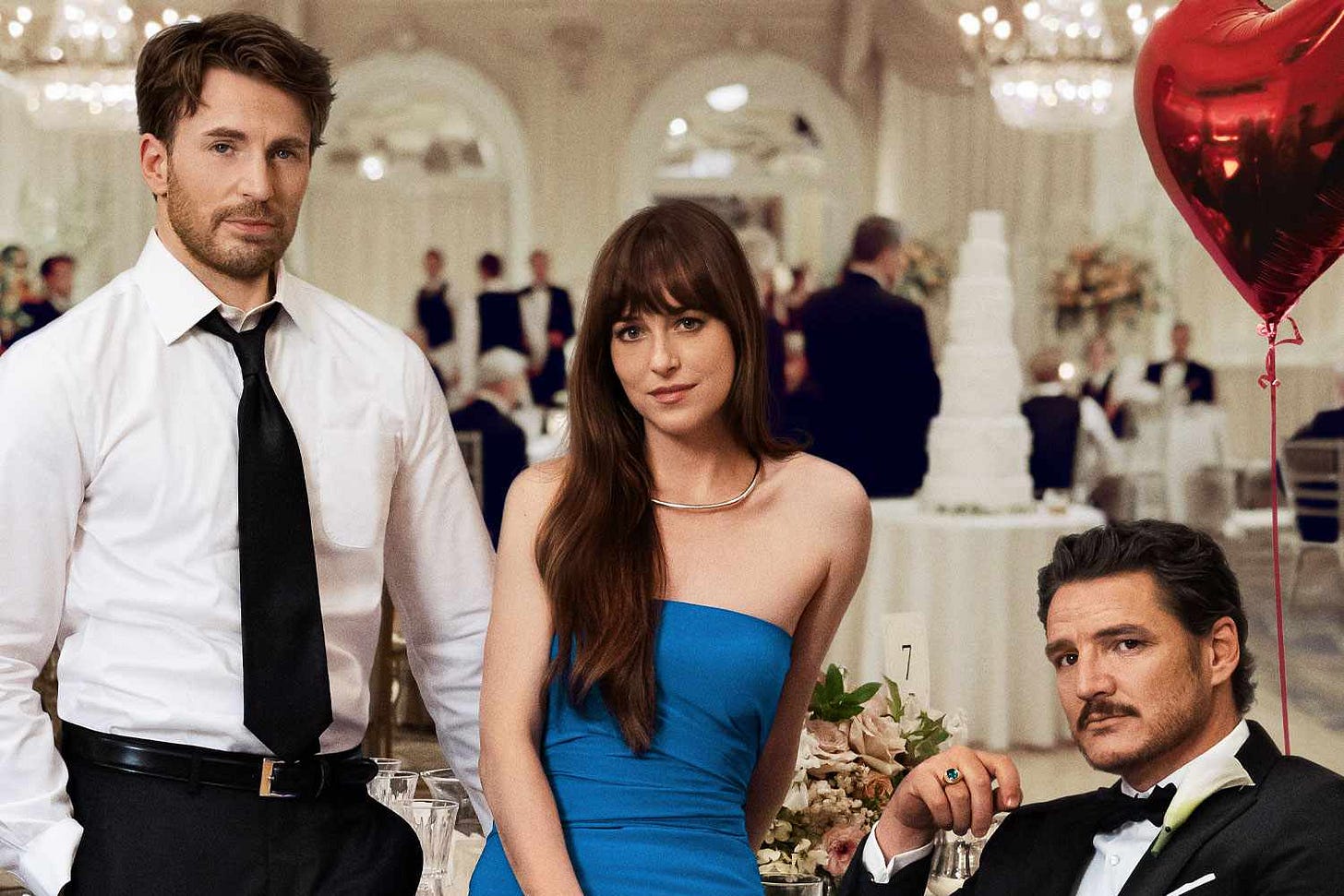Materialists' math doesn’t math
you asked, I’m answering
Greetings Austenites—(for, while this will not be a full-on adaptation of the Austen Math model, Austenite is the hat I ask you to wear here)—
Occasionally a cultural artifact emerges about which I get multiple dms/emails/etc. from readers soliciting my opinion. Celine Song’s new film Materialists is the latest such thing. So I watched it, and now I see why:
The dating pool as a market. Individuals within it having quantifiable, relative market values. Positional status optimization games. Marriage as a sort of equilibrial, mutually accretive M&A.
Also: moments of stark Girardian triangular desire. Probably the best scene in the film is early on, when our matchmaker heroine, Lucy (Dakota Johnson), goes to support equivocating bride Charlotte (Louisa Jacobson) in her preparatory suite. Why do you really want to get married, Lucy asks (more or less). Honestly? My sister’s jealous of the groom. And that makes me feel like I won (or something). Lucy: He makes you feel valuable. Charlotte: Yeah.
And the wedding’s on.
There are other moments, mostly in the sphere of Lucy’s matchmaking job and subplot surrounding her client Sophie (Zoë Winters, well cast) that likewise ring with this sort of novelistic truth. The inflated expectations of female clients (height! wealth! hair!); the differently inflated expectations of male ones (young! thin!). The sad market inefficiency—desperate loneliness—these systemic “non-negotiables” sustain. Early on, the film elucidates such phenomena well, at least at the intersection of fuckability and fortune; in the limited sphere of Austenian eligibility.

These very successes, however, to which the film’s main thrust fails to live up, come to exacerbate its collapse.
Not that there aren’t problems from the beginning.
Dakota Johnson looks so beautiful and expensive in this movie that every time Lucy articulates the gap in her market value vs. Harry (Pedro Pascal) it felt like an empirical assault. Johnson playing Lucy is like if Carrie Bradshaw’s apartment was a person, requiring a suspension of disbelief infinitely harder to surmount in human form atop a comparatively realistic background patina.
Chris Evans as John presents a similarly inherent casting problem: a mediocre actor so superheroly (if boringly) good looking it’s hard to imagine him not being successful in spite of his mediocrity, playing: an unsuccessful mediocre actor.
I might have been able to overlook these decisions if—
Keep reading with a 7-day free trial
Subscribe to quite useless to keep reading this post and get 7 days of free access to the full post archives.


